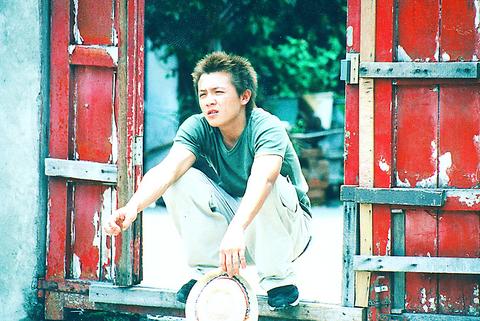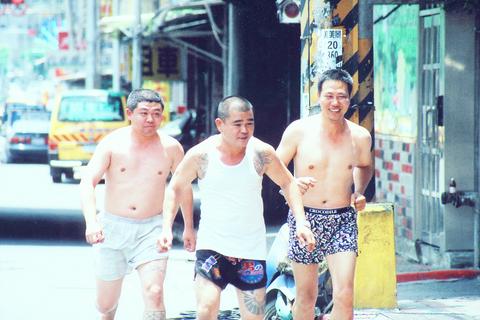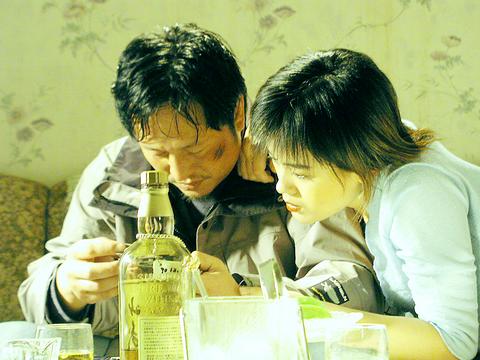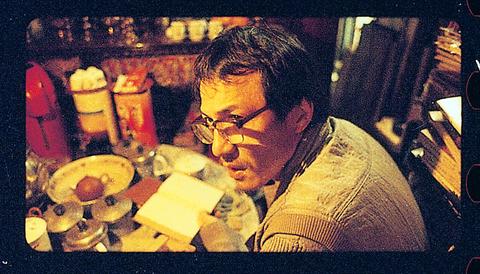Chinese is becoming the lingua franca of Lido Island in Venice, Italy. No less than five Chinese-language films are screening at the 59th Mostra Internazionale de Arte Cinematografica, or Venice Film Festival, which will take place from Aug. 29 to Sept. 8. Two of the five are from Taiwanese filmmakers.
The Best of Times (美麗時光), by Taiwan's own Chang Tso-chi (張作驥), is the only Chinese-language film selected to compete for the festival's highest prize, the Golden Lion. Hong Kong filmmaker and frequent guest at Venice, Fruit Chan (陳果), who last year brought his Hong Kong Hollywood, and Durian Durian (榴槤飄飄) the year before, this year brings his digital film Public Toilet to screen in the festival's Against the Mainstream section. In that same section are Chinese filmmaker Tian Zhuangzhuang's (田壯壯) 1930s drama Springtime in a Small Town (小城之春), and Missing Gun (尋槍) by China's Lu Chuan (陸川).
Cheng Wen-tang (

The festival's new artistic director, Moritz de Hadeln, announced the line-up of participating films last week. The opening film will be Julie Taymor's Frida, about the life of Mexican artist Frida Kahlo, played by Salma Hayek, whose life was closely intertwined with Central American history. Also in the competition are Steven Soderbergh's latest feature, Full Frontal, Liliana Cavani's Ripley's Game and Japanese director Takeshi Kitano's Doll.
Adding to the festival's Chinese attributes, festival organizers earlier announced that Chinese actress Gong Li (鞏俐) will serve as the jury chairperson, after leading the judges in Berlin in 2000 and at Cannes in 1997.
Filmmakers from Taiwan, Hong Kong and China are no strangers to the Golden Lion. In 1989, Hou Hsiao-hsien's (侯孝賢) City of Sadness (悲情城市), an epic about the 228 incident, was the first Taiwanese film to win the award. Then in 1994, Tsai Ming-liang (蔡明亮) walked away with the Golden Lion for his second feature, Vive L'Amour (愛情萬歲). Chinese director Zhang Yi-mou (張藝謀) took the award in 1999 for Not One Less (一個都不能少).

Chinese film fever seemed to take a rest last year, winning fewer awards and garnering smaller attention at major film festivals. But Chang's The Best of Times is now taking the lead to create further international hype for Chinese-language films.
Chang, winner of the 2000 Tokyo Film Festival for his Darkness and Light (黑暗之光), is known for his stories of people living at the fringe of the society. Ah-Chung tells the story of disaffected youth living in a shantytown outside Taipei and Darkness centers around blind characters. The Best of Times has been praised by critics in Taiwan as Chang's best work. The story revolves around two teenage boys from troubled families who frequent a fetid sewer near their homes.
Films about people at the fringe of society sounds like a familiar topic for many Taiwanese films, following Hou's style of social realism. But in Chang's films there is always another layer under the truthfulness; a strong romanticism, almost surreal in the humble lives of his characters. Exciting gang-fights are juxtaposed against the sentimental lights and shadows of the corner of a rainy day, sunsets by the sewer and the beautiful coral reefs where the two boys swim. And by the bed of a girl suffering from Leukemia there appears a unicorn. "Magical realism" could be used to describe the power behind the story. The Best of Times is Chang's third feature and his best chance yet competing against the likes of Kitano and Soderbergh.

Another Taiwanese entry, Cheng Wen-tang's Somewhere Over the Dreamland is a story about two Aboriginal men having different adventures in urban Taipei. One has mysterious dreams about his lost wallet and rice field. The other, a worker at a Japanese restaurant, always kills time at phone sex games, meets with a bizarre girl who tells him about a dream involving a rice field.
Cheng began movie-making in 1996. The film is his second feature film.


In the March 9 edition of the Taipei Times a piece by Ninon Godefroy ran with the headine “The quiet, gentle rhythm of Taiwan.” It started with the line “Taiwan is a small, humble place. There is no Eiffel Tower, no pyramids — no singular attraction that draws the world’s attention.” I laughed out loud at that. This was out of no disrespect for the author or the piece, which made some interesting analogies and good points about how both Din Tai Fung’s and Taiwan Semiconductor Manufacturing Co’s (TSMC, 台積電) meticulous attention to detail and quality are not quite up to

April 21 to April 27 Hsieh Er’s (謝娥) political fortunes were rising fast after she got out of jail and joined the Chinese Nationalist Party (KMT) in December 1945. Not only did she hold key positions in various committees, she was elected the only woman on the Taipei City Council and headed to Nanjing in 1946 as the sole Taiwanese female representative to the National Constituent Assembly. With the support of first lady Soong May-ling (宋美齡), she started the Taipei Women’s Association and Taiwan Provincial Women’s Association, where she

Chinese Nationalist Party (KMT) Chairman Eric Chu (朱立倫) hatched a bold plan to charge forward and seize the initiative when he held a protest in front of the Taipei City Prosecutors’ Office. Though risky, because illegal, its success would help tackle at least six problems facing both himself and the KMT. What he did not see coming was Taipei Mayor Chiang Wan-an (將萬安) tripping him up out of the gate. In spite of Chu being the most consequential and successful KMT chairman since the early 2010s — arguably saving the party from financial ruin and restoring its electoral viability —

It is one of the more remarkable facts of Taiwan history that it was never occupied or claimed by any of the numerous kingdoms of southern China — Han or otherwise — that lay just across the water from it. None of their brilliant ministers ever discovered that Taiwan was a “core interest” of the state whose annexation was “inevitable.” As Paul Kua notes in an excellent monograph laying out how the Portuguese gave Taiwan the name “Formosa,” the first Europeans to express an interest in occupying Taiwan were the Spanish. Tonio Andrade in his seminal work, How Taiwan Became Chinese,